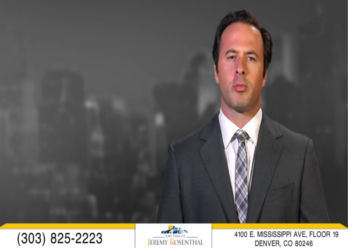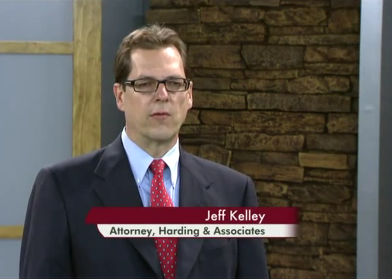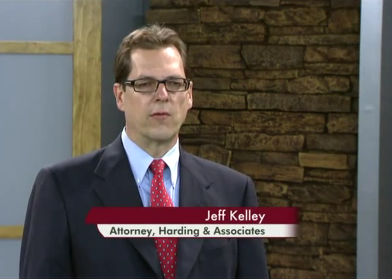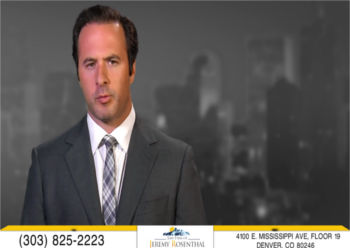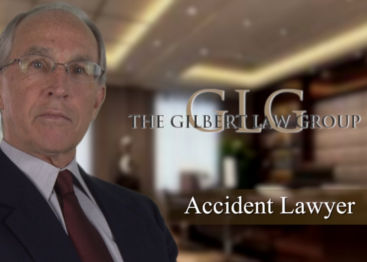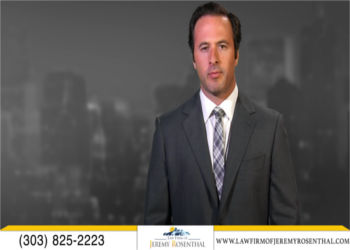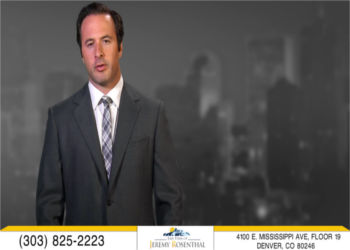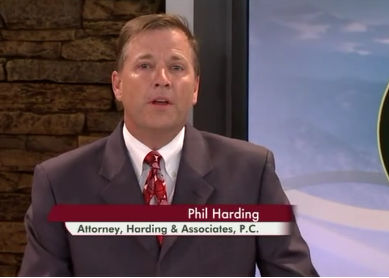Paying Medical Bills Following Bicycle Collision
This summer, unfortunately it seems not a week goes by without a car versus bicycle accident. Despite ad campaigns about keeping our heads up, everybody, whether we’re driving or biking, we’ve had way too many of these accidents. We’re here to talk about what happens after this kind of an accident, and how to get your medical bills paid.
We have Jeff Kelly, he is an attorney with Harding & Associates, in for Phil Harding this Friday. Good to see you again. Good morning. Jeff, you were here last week, and you talked about an interesting concept I haven’t really even heard about before, and that’s about stacking insurance policies to make sure you’re actually getting all of the compensation that’s due you.
That’s correct. And to remind our viewers, you need to have a knowledgeable attorney in this area who will really dig into the different coverages available. And here is a graphic that we used last week. Maybe we could talk about this just for a minute.
Areas of Coverage
Yeah, just kind of a refresher here. Right. And the different areas that you look to for a coverage would be the owner of the car, if they have insurance, the driver of the car, are they insured? And if you have problems in those areas, there may not be insurance or enough insurance, and you look to your own UM, UIM coverage, which we know is Uninsured Motorist or Underinsured Motorist coverage. Yeah, we know that now because you all are always here educating us on UM and UIM.
All right, so we understand a little bit more about the stacking, so that says the car driver or even the passenger, or the person who’s been hit. But I would think it’s vital that we have an attorney who understands how to dig and find those different policies for example. Right. You know, it’s not just knowing about digging into finding each of these policies or coverages, but you absolutely have to give the proper notification.
Today I want to show our viewers how they can reduce what they have to pay back to health insurance, Medicaid, Medicare, and the like. Yeah. I think a lot of people including myself didn’t realize that you do have to pay it back. I just thought, “Okay, it’s covered, they pay for it.” But once you get these policies and they come in, sometimes you have to pay back the health insurance, right?
Yes. And that’s called subrogation. Subrogation is paying back any health or other insurance company money that they paid out for your medical care due to this accident. Three years ago Colorado passed a law that says, “Whenever an insurance company pays– whatever they pay out for you, needs to be reduced by the amount of your attorney’s fees.” Yeah, it was just three years ago. It was called the Make Whole Law. Here is a little bit of it, an excerpt from it, right? Yes, and I’d like the viewers to know that it’s important that it says, “The amount recoverable if any by the payer of benefits or reimbursement, or subrogation, shall be reduced by an amount equal to the payer of benefits proportionate share of the attorney’s fees and expenses incurred on behalf of the injured party in making a recovery.”
All right. So the two little tiny words, but if any. That’s a big deal. If any is paid back to the health insurance, is that correct?
Yes. Great eye for detail. The reason that that’s important is that the law says that if any, is because if you are not made whole, you generally do not have to pay back your health insurance. Let’s look at another portion of this law, of the Make Whole Law. It says, “Any provision in a policy contract or benefit plan allowing a required reimbursement for subrogation in circumstances in which the injured party has not been fully compensated, is void as against public policy.”
All right. So is this where you come in, Jeff? You and the rest of the team at Harding & Associates? You help the court decide or anyone decide if I have been made whole?
Yeah. I mean how do you prove you’ve been made whole or not? Great point. What we do is, this law describes this type of a determination. It’s set up by statue. In short, if you get the total amount of the insurance coverage as we went through those policies, and we’ll do that in a minute, then you are presumed not to have been made whole. And with this analysis that works with each policy that you can collect from. So if we could go back to that first graphic, I could go through this for– We may have a little bit of technical, our air on the graphics.
So let’s just talk about the different ones. So if the owner of the car, if they have insurance. Let’s say they get 25,000. Right?
Yes. What you do is, you go through an analysis with each policy. And let’s say potentially there is a $25,000 policy for the driver of the other car, $25,000 policy for the owner of the car, possibly a $25,000 UM, UIM policy on another vehicle you may own, then as you settle with each carrier, presuming you have damages that substantiate that type of a recovery. Then the health insurance company, based on the Make Whole Law, will defer recovery, and should defer recovery so you don’t have to pay back your health insurance each time you go through that analysis with each settlement. Okay. Now, I think it’s important here, because the Make Whole Law is relatively new. You said it’s only three years old. Yes. I didn’t even know about it. And you said there were actually attorneys who– they know that it exist, but they’re not actually even using it. That is key when you’re in an accident, to have an attorney like you and Phil, you’re digging for these other policies. And I think the point– it’s all wiggled, so I’m trying to keep up with you. So if you are getting the maximum, the 25,000, then basically they’re assuming, “Okay, you haven’t been made whole yet because you’re already getting the max.”
Correct. Am I reading that right? Right. The presumption is that a policy limit settlement presumes that you have damages that exceed that amount. So what you have to do is, you have to give the health insurance company, and they use a third-party administrator to recover monies for the health insurance company. You give them a 60-day notice, and they have that time period to evaluate it and look at it, and determine if they agree that the party has not been made whole by that policy when there is settlement. If they don’t agree, then you have to go to an arbitration with them. Okay. All right. Good stuff. Thank you so much.
You’re always educating us, you and Phil. If you have any legal questions for Jeff or his colleague Phil Harding, they would absolutely love to hear from you, and it’s easy to get a hold of them. You can go to our website coloradosbest.tv. Look for Phil’s photo there, there it is. Click on it, and they take the time and answer each of your questions personally. And many times they come on the show and address them right here on Colorado’s Best. To contact Harding & Associates directly, here is their number 303-762-9500. You can also go online to hlaw.org. Coming up.
By: Jeff Kelley

